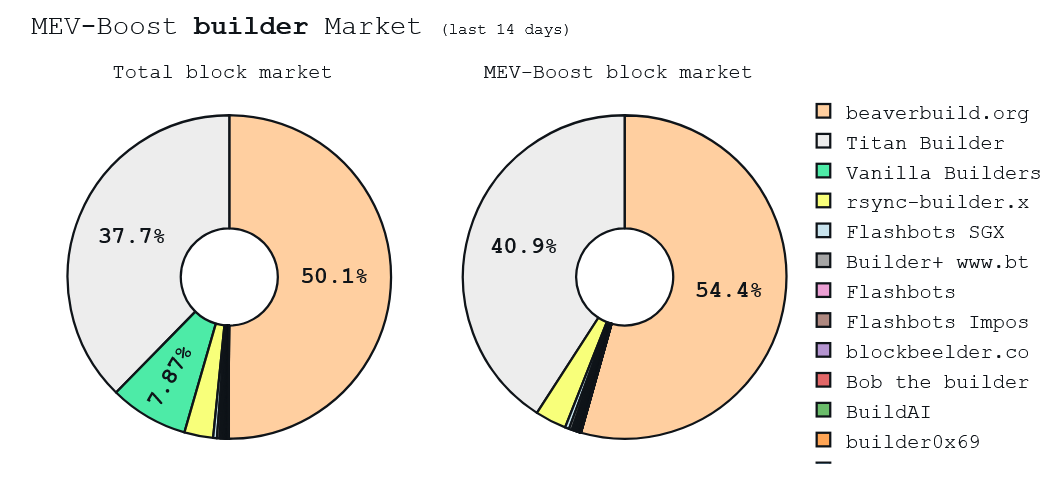Flashbots Launches BuilderNet to Combat Ethereum Block Builder Duopoly
Blockchains sell blocks, with block builders currently dominated by two players: Beaverbuild and Titan. This duopoly negatively impacts maximal-extractable value (MEV), which is the monetary value created by end users and ideally should be returned to them.

The Flashbots team has introduced BuilderNet, a new block building network aimed at redistributing MEV and gas fees back to users. BuilderNet operates alongside Nethermind and Beaverbuild, seeking to decentralize the current “monolithic process” of block building.
This initiative allows stakeholders such as block builders, searchers, and dapps to form a “multioperator network” that can simultaneously operate the same block builder. Rewards are refunded to participants based on their contribution to a block's market value. Any application can submit transaction order flow to a block builder permissionlessly and securely, with payments distributed on a pro rata basis.
Transactions remain private through a “trusted execution environment” (TEE), ensuring data processing without exposing order flow details. Operators can also deploy block builders within BuilderNet without restrictions.
BuilderNet aims to counteract practices that internalize MEV from end users, including exclusive revenue-sharing agreements between apps/wallets and block builders. Additionally, some block builders have pursued vertical integration within the MEV supply chain, as seen with Titan’s relayer launched in April 2024, which only accepted its own blocks, undermining the offchain proposer-builder-separation (PBS) concept introduced by Flashbots’ MEV-boost software.
While BuilderNet primarily benefits Ethereum L1, there are plans for decentralized sequencing on L2s using Rollup-Boost, the upcoming block building platform for Unichain.